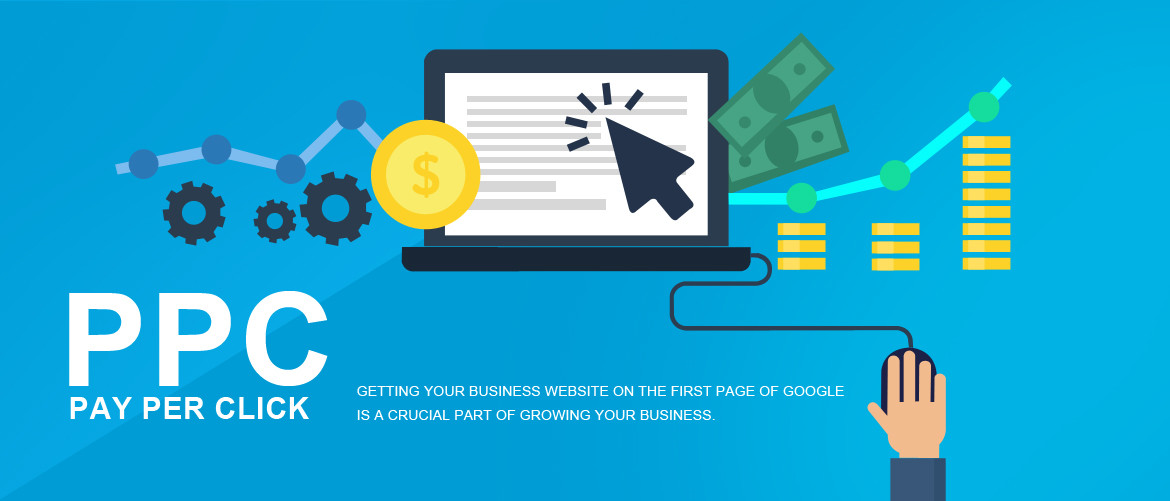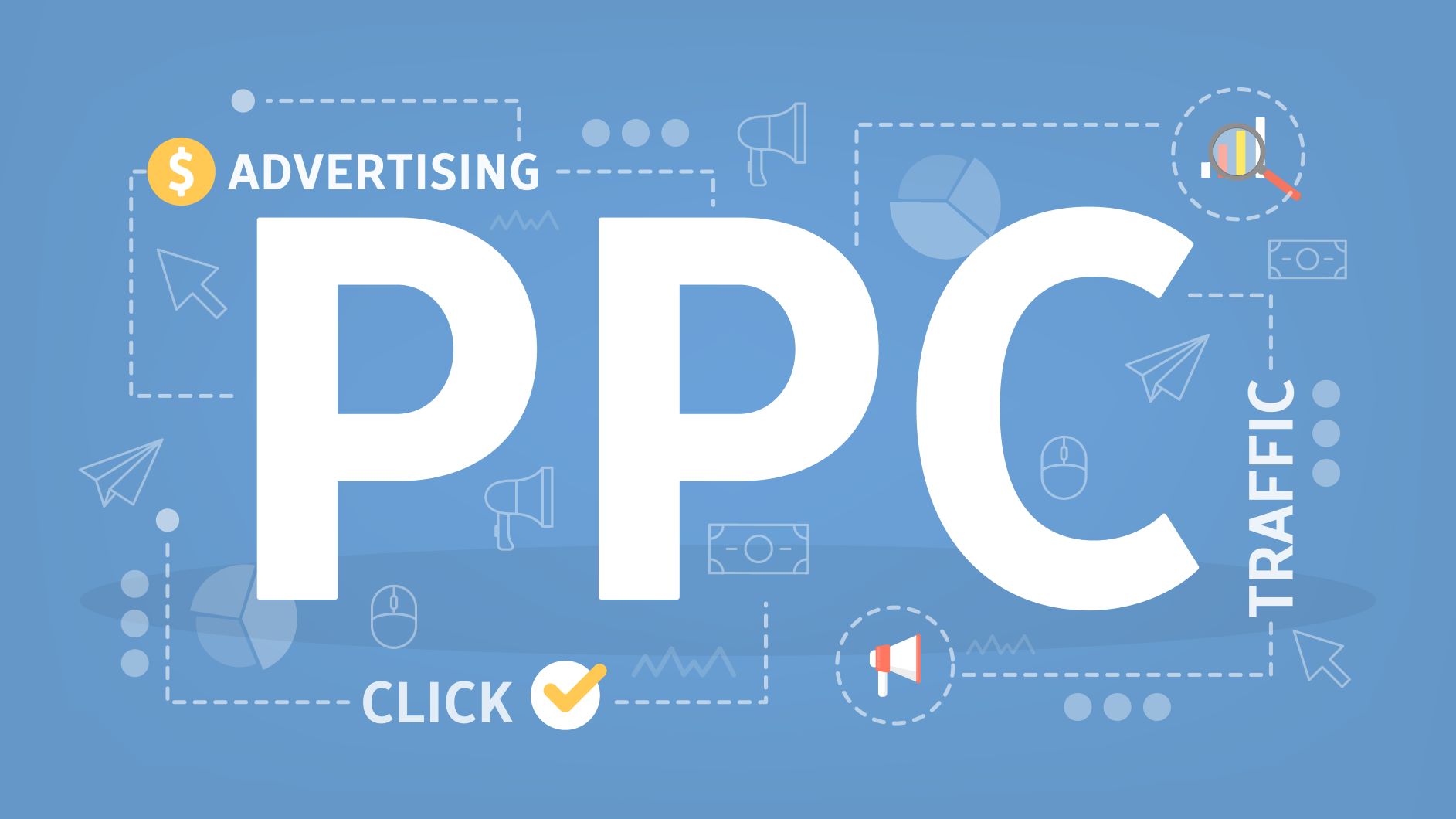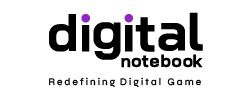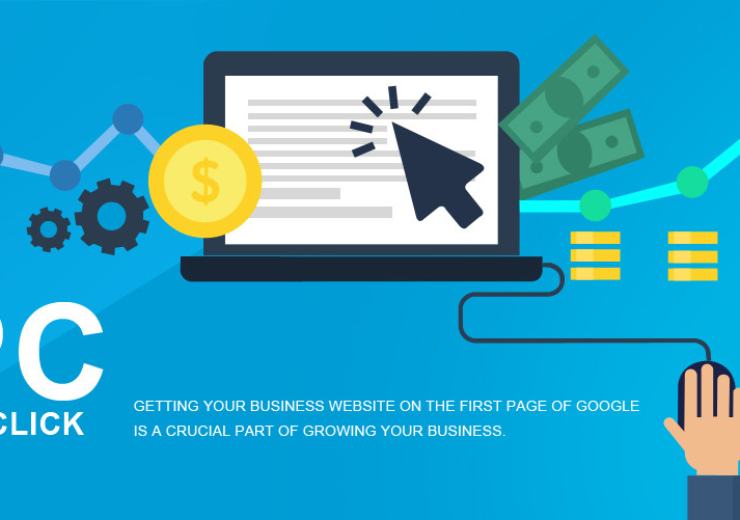What is PPC in Digital Marketing?

PPC, or Pay-Per-Click, is a vital component of digital marketing strategies. Advertisers pay a fee each time their ad is clicked in this online advertising model. Moreover, PPC campaigns are commonly run on search engines and social media platforms, offering businesses targeted visibility and the potential for increased website traffic and conversions. Want to know more about PPC in Digital Marketing? Read our blog for more insights, tips, and strategies to optimize your campaigns and achieve success.
PPC in Digital Marketing: Overview
Pay-Per-Click, sometimes known as PPC, is an advertising technique in which advertisers pay a fee each time their ad is clicked. It’s a technique for getting traffic to your website through paid advertising rather than organic means. Furthermore, businesses only pay for legitimate clicks using this cost-effective advertising technique, boosting their return on investment (ROI). Moreover, it offers the capabilities needed for thorough tracking and analytics so that campaigns can be optimized for the greatest results.
How does PPC Advertising Work?
PPC advertising, also known as Pay-Per-Click advertising, is a method used by advertisers to display their ads to users who search for specific words or phrases, such as “PPC in digital marketing.” Advertisers bid on these keywords, and if a user searches for one of them, the ad will show up at the top. The advertiser pays a fee every time someone clicks on their ad.
Advertisers develop campaigns to target specific geographies, interests, and demographics. They set the maximum bid for the terms they want to target.
The search engine will then choose which ads to display and in what sequence using a sophisticated algorithm. The algorithm considers variables such as:
- The bid amount chosen by advertisers
- How well the ad matches the keyword
- The ad’s quality
- Strategies and planning for PPC campaigns
- Popular PPC platforms
- Methods to acquire knowledge in PPC

Top PPC Advertising Platforms for Effective Digital Marketing
The choice of advertising platforms depends on various factors, such as your target audience, industry, and specific advertising goals. Moreover, some of the most widely used platforms for PPC in digital marketing include Google Ads, Facebook Ads, Microsoft Advertising, and LinkedIn Ads:
Google Ads:
The biggest and most well-known PPC advertising platform is Google Ads, previously Google AdWords. You may use it to make advertisements that show up on the Google Display Network’s websites as well as on Google’s search engine results pages (SERPs).
Microsoft Advertising:
Formerly known as Bing Ads, this is the PPC platform used by Microsoft’s Bing search engine. It gives you access to a different audience than Google AdWords and may be a powerful platform, particularly if Bing users are part of your target market.
Facebook Ads:
PPC advertising possibilities are available through Facebook Ads on the largest social media network in the world. With detailed targeting options based on demographics, interests, and behaviors, Facebook Ads can help you reach a specific audience and engage with them through various ad formats.
Instagram Ads:
Instagram, a Facebook subsidiary, provides a platform for creating PPC ads from within the Instagram app. It works particularly well for companies catering to younger customers or those in aesthetically appealing fields.
Twitter Ads:
You can advertise your content, goods, or services on the well-known microblogging network with Twitter Advertising. With choices for targeting based on demographics, hobbies, and keywords, you can connect with the right individuals and increase interaction.
LinkedIn Ads:
Individuals and organizations use the LinkedIn Advertising platform to advertise on the biggest professional networking site in the world. It is perfect for business-to-business advertising and professional services since it gives targeting possibilities based on job titles, industries, and firm size.
To assist advertisers in reaching their target demographic and achieving their marketing objectives through PPC advertising, these platforms provide a wide choice of targeting options, ad types, and tools. To choose the best platform for your PPC campaigns, it’s critical to conduct research and analyze various platforms based on your unique company requirements, target market, and advertising objectives.
Advantages of PPC in Digital Marketing
PPC advertising in digital marketing has several benefits, including immediate visibility, accurate targeting, quantifiable outcomes, and cost management. Let’s have a quick look at the advantages of PPC in digital marketing.

1. Immediate Website Traffic
Search engine results pages (SERPs) display PPC advertisements alongside organic results. SEO-based organic traffic strategies require time and are most likely to start showing significant benefits after six to twelve months. On the other hand, PPC immediately draws website visitors as soon as you set up the advertisements.
2. Help SEO Strategy
Although PPC advertising has no direct impact on a website’s SEO, it does aid in the design of that SEO. PPC advertisements need a list of specific keywords that you wish to rank for. Additionally, if these keywords are successful in drawing customers through PPC, there is a significant likelihood that they will do the same for organic traffic.
3. More Leads
All PPC inquiries begin at a brand-consumer touchpoint (on the SERP); therefore, any leads generated by the PPC in a digital marketing campaign are already warm. Therefore, you only need to make sure that the information on the page they come on after clicking on your ad may convert since they’ve already expressed interest in what you have to offer.
4. Specific Targeting
Pay-per-click marketing enables advertisers to focus on the particular characteristics of their target markets. Moreover, after developing them, you can employ target market personas to adjust PPC ads’ targeting criteria, which can range from general demographics like geography, age, and gender to more specific interests.
5. Quick To Make
Free PPC management solutions like Google AdWords simplify the creation of effective advertising campaigns by offering best practices recommendations and easy setup, even for beginners. PPC in the digital marketing industry is a game-changer that, when used properly, produces incredible results.
6. Algorithm Changes Don’t Affect PPC Ads
Modifications to search engine algorithms impact content marketing and SEO, contrasting with trustworthy PPC advertising.
You can quickly predict how your current and next campaigns will perform based on past data because PPC algorithms don’t often undergo substantial modifications.
7. Social Media Strategy Gains Profit from PPC User Data
An integrated PPC campaign across search and social can cut acquisition costs while converting more customers than standalone PPC advertising. More cross-channel client data will be provided to you, which you can strategically employ to improve your marketing.
Conclusion
PPC in digital marketing is a powerful advertising strategy that offers immediate visibility, accurate targeting, and quantifiable outcomes. Businesses can use it to create warm leads and direct targeted traffic to their websites. Furthermore, careful bid management, persuasive ad text, and successful keyword research can produce great results in PPC campaigns. Additionally, businesses can maximize their digital marketing efforts and succeed by utilizing the benefits of Professional PPC Ads Management Services.




